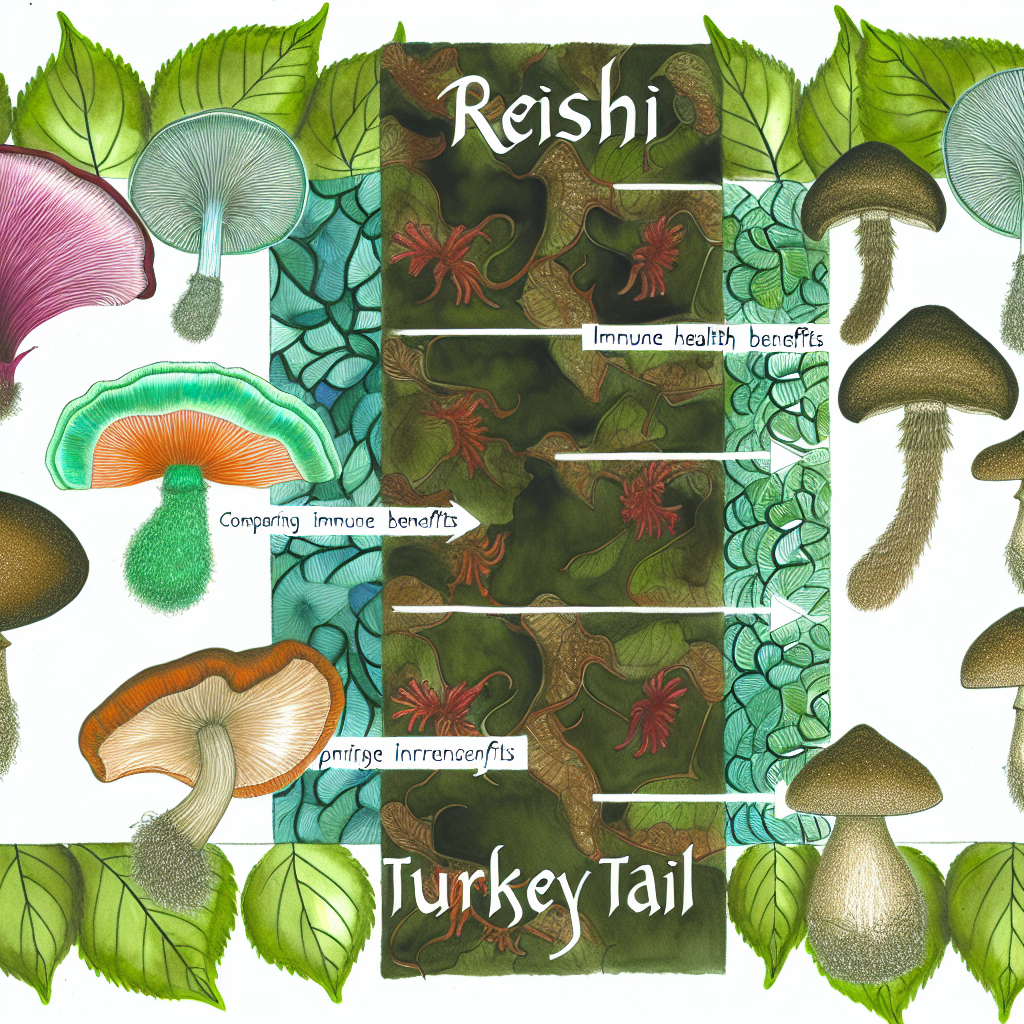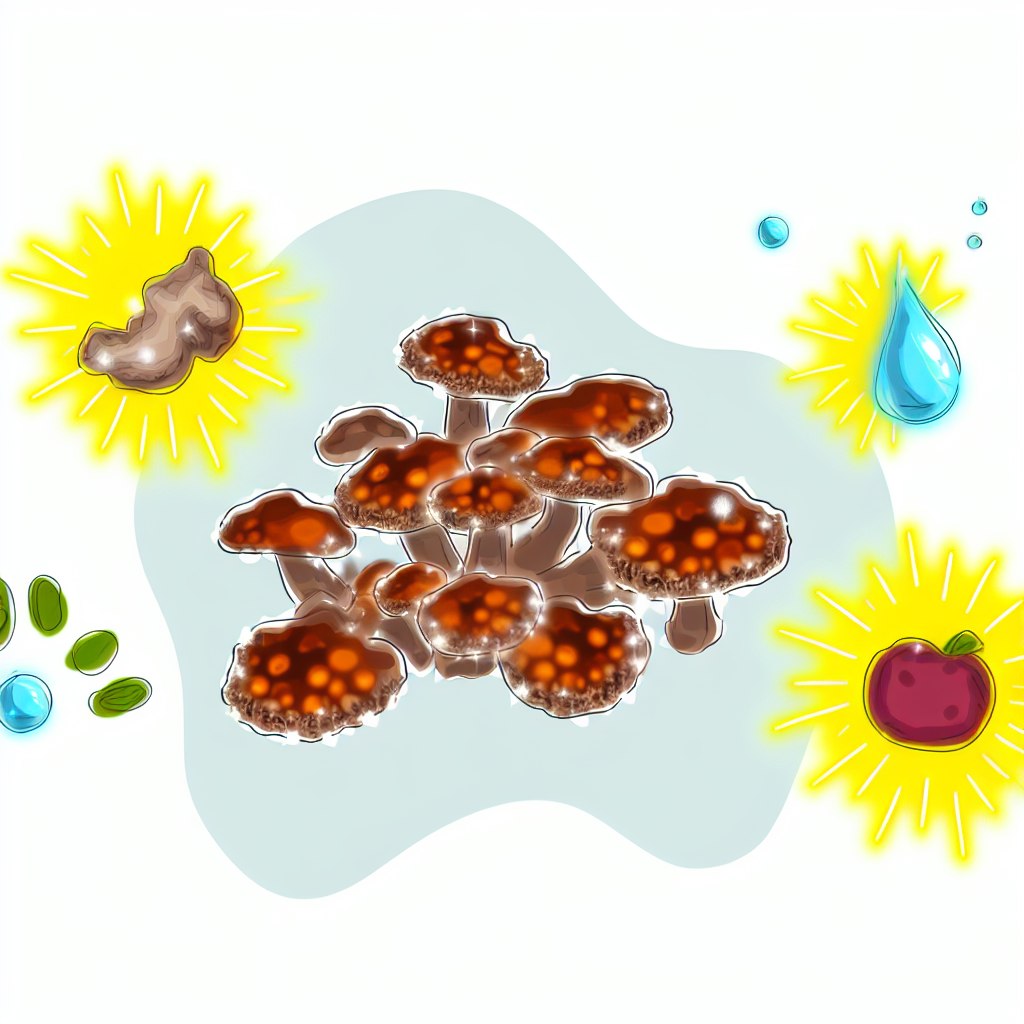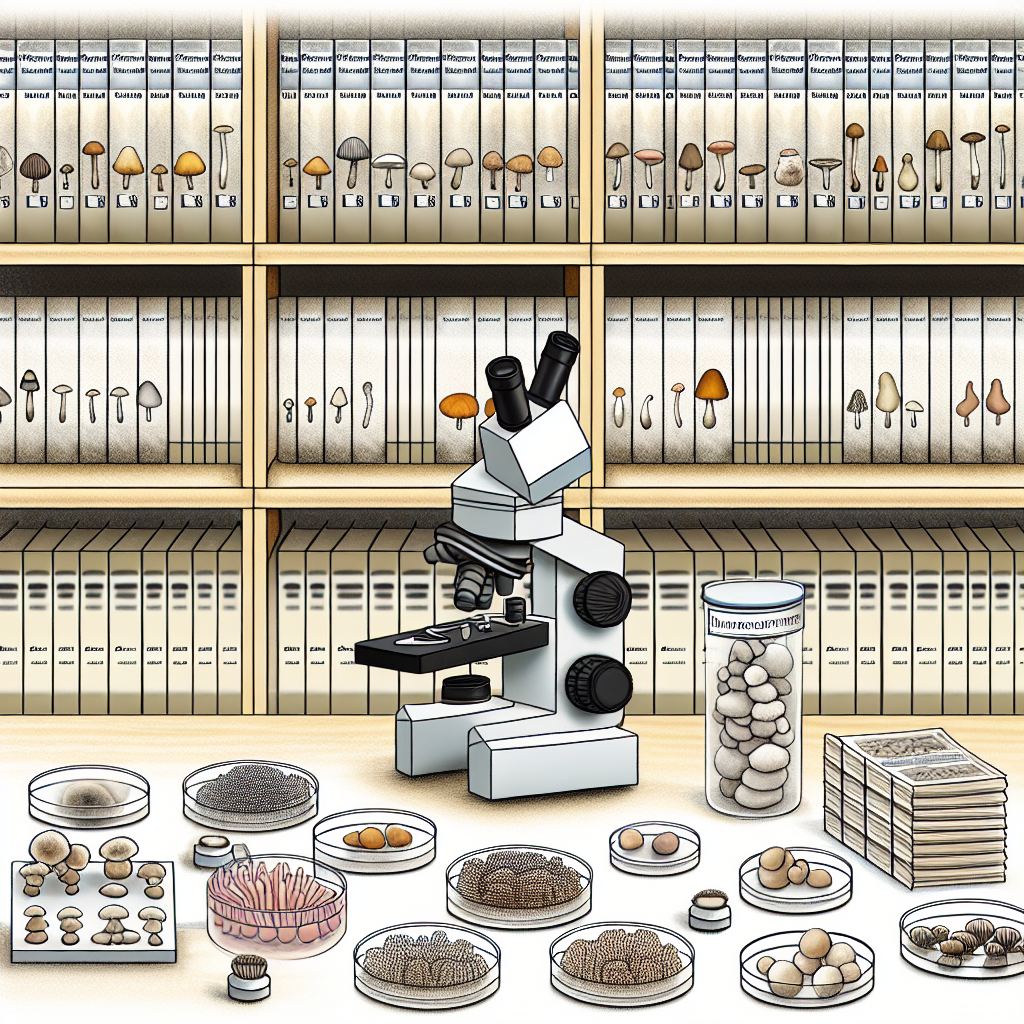Reishi vs. Turkey Tail: Which Mushroom is Superior for Immune Health?
Ancient Wisdom Meets Modern Medicine: A Mushroom Showdown
Mushrooms have long held a revered place in traditional medicine, with ancient cultures tapping into their healing potential for thousands of years. In recent decades, the West has begun to catch up, and among the myriad of medicinal fungi, two species stand out for their powerful immune-enhancing benefits: Reishi (Ganoderma lucidum) and Turkey Tail (Trametes versicolor). Known for their bioactive compounds and adaptogenic properties, both mushrooms have earned the spotlight in modern integrative health circles. But when it comes to bolstering the immune system, which one truly reigns supreme?
Immune health has never been more relevant. With increasing awareness about preventive health, natural remedies, and functional foods, people are turning to botanical allies to fortify their immunity. Reishi and Turkey Tail mushrooms have become front-runners thanks to their rich profiles of polysaccharides, triterpenoids, antioxidants, and beta-glucans—compounds known to regulate immune function, reduce inflammation, and potentially combat infections and disease.
Immune Powerhouses: Reishi and Turkey Tail Under the Microscope
When it comes to evaluating immune benefits, we turn to peer-reviewed studies and clinical trials to assess the impact of both mushrooms in medical and real-world contexts.
Reishi: The Adaptogenic Guardian of Daily Wellness
Several studies highlight Reishi’s immunomodulatory effects. Reishi contains bioactive components including beta-glucans, triterpenoids, and ganoderic acids, all of which interact with immune cells such as natural killer (NK) cells and T lymphocytes.
A study published in the Journal of Ethnopharmacology confirmed that Reishi polysaccharides enhance macrophage function, facilitating improved pathogen detection and response. Additionally, a clinical trial in breast cancer patients found that Reishi improved immune response post-treatment and reduced chemotherapy-related fatigue.
Moreover, the adaptogenic effects of Reishi play a unique role by helping the body handle physical and psychological stress, which is a known immune suppressant. This dual action—energizing the immune system while calming systemic stress—gives Reishi a unique edge in holistic immune support.
Turkey Tail: Nature’s Warrior for Immune Defense and Recovery
Turkey Tail’s reputation in Western medicine skyrocketed due to its application in cancer immunotherapy. Its standout compounds—PSP and PSK—are extensively documented for their ability to stimulate dendritic cells, increase antibody production, and improve the function of T-cells.
One of the most pivotal studies comes from Japan, where PSK has been approved for use in conjunction with chemotherapy for cancers such as gastric, colorectal, and breast. Clinical studies have shown that patients receiving PSK alongside chemo experienced increased survival rates compared to those receiving chemotherapy alone.
A notable U.S. study from the University of Washington found that breast cancer patients taking Turkey Tail supplements post-radiation experienced significant improvements in NK cell activity—a crucial part of the body’s defense against viruses and tumors.
Additionally, Turkey Tail possesses prebiotic effects, fostering beneficial gut flora. Since over 70% of the immune system resides in the gut, Turkey Tail’s synergy with the microbiome offers a powerful route to sustained immune resilience.
Final Verdict: Which One Wins the Immune Health Crown?
Both Reishi and Turkey Tail mushrooms offer powerful, scientifically supported pathways to improved immune health, but their applications differ slightly. Reishi stands out for its adaptogenic, stress-mitigating properties alongside direct immune modulation, making it ideal for those seeking preventive, all-purpose immune support. Turkey Tail, with its potent beta-glucans and robust clinical backing in oncology, is unparalleled for targeted immune stimulation and recovery—particularly after illness or medical treatment.
Choosing the “superior” mushroom ultimately depends on individual health needs:
– For holistic daily immune balance and stress support: Reishi is your go-to.
– For focused immune activation and recovery during or after illness: Turkey Tail takes the lead.
Why not both? Many functional medicine practitioners advocate for a synergistic approach—combining the two mushrooms to create a broader spectrum of immune support. Whatever your goal, these powerful fungi are a testament to nature’s ability to heal and protect.
References
Concise Summary:
Reishi and Turkey Tail mushrooms are two of the most powerful natural remedies for boosting immune health. Reishi is known for its adaptogenic properties that help manage stress, while Turkey Tail is renowned for its immune-stimulating compounds that have shown benefits in cancer treatment. Both offer unique advantages, with Reishi being ideal for daily wellness and Turkey Tail excelling at targeted immune support and recovery. Combining these two mushrooms can provide a comprehensive approach to strengthening the immune system.

Dominic E. is a passionate filmmaker navigating the exciting intersection of art and science. By day, he delves into the complexities of the human body as a full-time medical writer, meticulously translating intricate medical concepts into accessible and engaging narratives. By night, he explores the boundless realm of cinematic storytelling, crafting narratives that evoke emotion and challenge perspectives. Film Student and Full-time Medical Writer for ContentVendor.com




